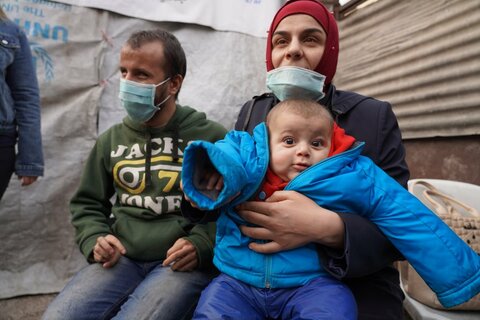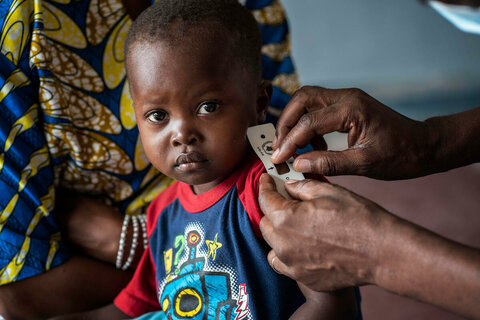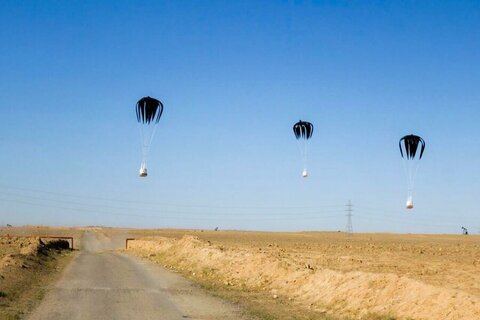‘The toughest Ramadan’: Soaring prices deny Syrians basic foods
“My country’s suffering from one of the worst crises of the 21st century,” says Nour Abdallah — as a field monitor for the World Food Programme (WFP), her job is to ensure that the right food reaches the people who need it the most in Syria.
Food prices across the country are skyrocketing — the cost of basic food items is up a staggering 313 percent on figures for 2019. Today, a record number of Syrians don’t know what they will eat tomorrow.
My Ramadan: Two Muslim women tell their stories
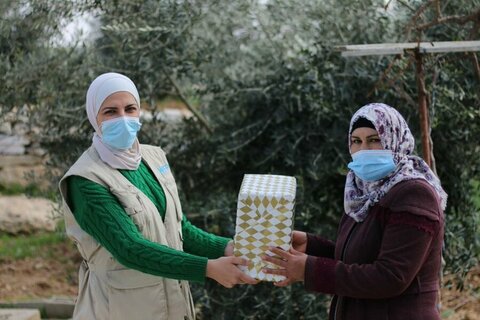
More than 12 million people in her homeland don’t have enough to eat. “Almost everyone is suffering from the consequences of conflict in one way or another,” she says. “Very few families have been spared.”
Each month, over 400 WFP staff are at hand providing life-saving food to 4.8 million people across Syria — together with nutrition assistance, this is critical for families struggling to rebuild their lives after a decade of conflict. They face unprecedented challenges to buy the basics, including medicines, and to continue sending their children to school.
The scale of people’s desperation is highlighted during the holy Islamic month of Ramadan, when Muslims usually have two meals a day instead of three — one before sunrise (sohour) and another to break their fast in the evening (iftar). “We go without food and drink for about 15 hours,” says Nour. Many Syrians, however, only get to eat one meal a day throughout the year.
“Ramadan this year is different and more challenging,” says Nour. Since the crisis started 10 years ago, “this past year is the worst we have seen”. With the economic impacts of COVID-19, “people are struggling to meet their daily needs. Many cannot get enough food, and if they do, it is not enough to keep them full and to make sure they get the nutrition they need to stay healthy.”
Nour grew up in Aleppo. “As children we would celebrate Ramadan not just with our family, but with our whole community,” she says. “It was a time to come together and share what we had with our family, our neighbours and those who were less fortunate than us.”
When conflict broke out in 2011, life changed for her and millions of others. She left her home, her city and made a new start: “My family moved to Damascus after our house was destroyed. We found safety, security and I started to work with WFP in 2019. I decided to become a humanitarian so I could serve people who need many things. At least, working at WFP, I can do one thing to help people who are suffering.
“My work requires me to be on the ground with the families who are severely affected by the crisis. This is both the best and most challenging part of my job. I like to meet people, listen to them and hear what is happening in their lives so that we can best support them.
Window on Syria: A WFP photographer looks back at a decade of conflict
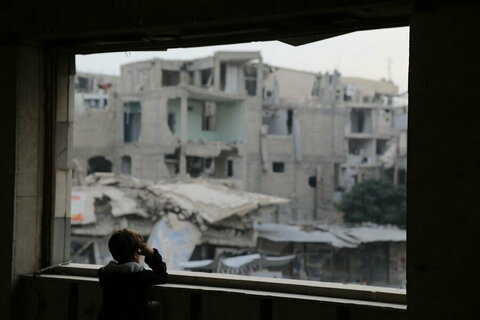
“But it also makes me feel sad because we can’t do everything. Even when I return home, I still think of the people I have met and how much they are suffering. This motivates me to work harder to make sure they can get the help they need.”
Ramadan, she says, is a time to “give endlessly”.
“It’s a time for spirituality, forgiveness and patience. I spend more time with my family, appreciate the life we’ve been given and take the time to give back. Ramadan is a month to focus on other people.”
When asked about her hopes for the future of Syria, Nour’s answer is simple. “Peace. For people in Syria and everyone around the world.”

